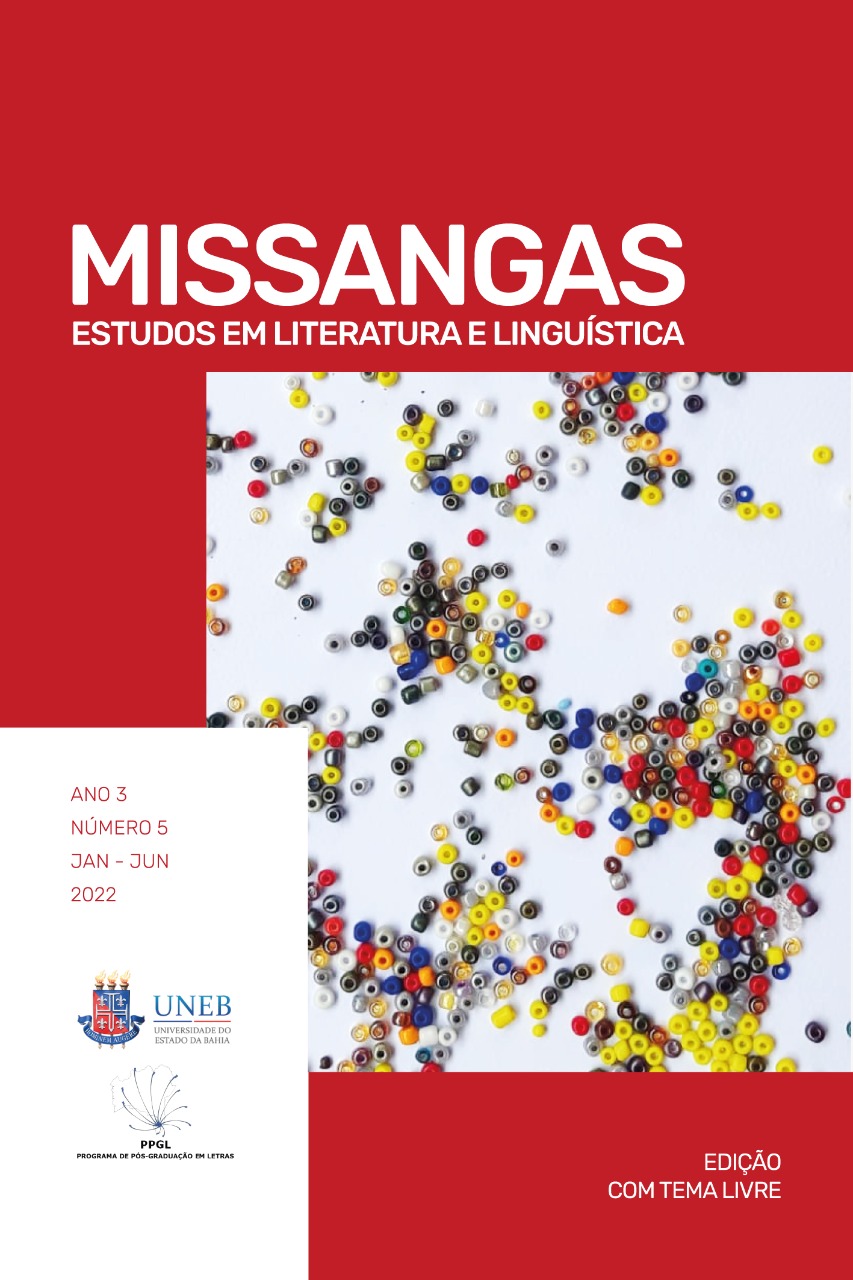LUGARES E POSIÇÕES ATRIBUÍDOS DISCURSIVAMENTE À ESCOLA, À DISCIPLINA LÍNGUA PORTUGUESA, AO PROFESSOR E AO ALUNO NO PROCESSO AVALIATIVO
PLACES AND POSITIONS DISCURSIVELY ASSIGNED TO THE SCHOOL, TO THE PORTUGUESE LANGUAGE DISCIPLINE, TO THE TEACHER AND TO THE STUDENT IN THE EVALUATION PROCESS
DOI:
https://doi.org/10.53500/missangas.v3i5.13867Keywords:
Evaluation; Discourse; Portuguese Language Teaching; Images.Abstract
Abstract: In this study, we aim to investigate the images that are discursively constructed of the school, the Portuguese Language subject, the teacher and the student in the “evaluation” section of course plans for the Portuguese Language subject. We analyzed the places and positions that are attributed to the individuals, as well as the referred discipline in the respective school documents. The course plans were selected from two municipal schools in the extreme south of Bahia, located in Medeiros Neto and Nova Viçosa. We base the research on studies by Pêcheux (2014) – consistent with the mechanisms of discursive functioning and imaginary formations –, Libâneo (1992) – referring to pedagogical planning – and in Antunes (2003) – concerning school assessment. As a methodology, we use the “evidence paradigm” method (GINZBURG, 1989). Firstly, we describe the content mobilized in the “evaluation” section and then we examine the discursive level. The predominant discourses in the text texture indicated the following images: the school and the Portuguese Language discipline as places to control teaching work and student behavior; the teacher is responsible for the performance and monitors the student's conduct; the student, on the other hand, is undisciplined, submissive to the teacher's command and responsible for his own performance. This set of images signaled the remnants of the traditional assessment in planning, in which are disregarded the singularities of the subjects that compose the school context.
Keywords: Evaluation; Discourse; Portuguese Language Teaching; Images.
Downloads
References
APPLE, Michael. Ideologia e Currículo. Tradução de Carlos Eduardo Ferreira de Carvalho. São Paulo: Brasiliense, 1982.
BARZOTTO, Valdir Heitor. Instâncias formadoras, domínio da escrita e poder do professor. In: CENTURION, Rejane; CRUZ, Mônica; BATISTA, Isaías Munis (orgs.). Linguagem e(m) interação-línguas, literaturas e educação. Cáceres: UNEMAT, 2011. p. 11-16.
FERREIRA, Andrea Tereza Brito. O cotidiano da escola como ambiente de “fabricação” de táticas. In: ______; ALBUQUERQUE, Eliana Borges Correia de; LEAL, Telma Ferraz (orgs.). Formação continuada de professores: questões para reflexão. Belo Horizonte: Autêntica, 2007. p. 65-77.
GANDI, Danilo. A prática do planejamento participativo: na educação e em outras instituições, grupos e movimentos dos campos cultural, social, político, religioso e governamental. 2. ed. Petrópolis, RJ: Vozes, 1994.
GINZBURG, Carlo. Sinais: raízes de um paradigma indiciário. In: ______. Mitos, emblemas, sinais: morfologia e história. Tradução de Federico Carotti. São Paulo: Companhia das Letras, 1989. p. 143-179.
GRIGOLETTO, Evandra. Do lugar social ao lugar discursivo: o imbricamento de diferentes posições-sujeito. In: II SEMINÁRIO DE ESTUDOS EM ANÁLISE DO DISCURSO, 2., 2005, Porto Alegre. Anais do II SEAD – Seminário de Estudos em Análise do Discurso. Porto Alegre: UFRGS, 2005. p. 1-11. Disponível em: http://anaisdosead.com.br/2SEAD/SIMPOSIOS/EvandraGrigoletto.pdf. Acesso em: 18 out. 2019.
LIBÂNEO, José Carlos. Didática. São Paulo: Cortez, 1992. (Coleção Magistério – 2º grau. Série Formação do professor).
MIZUKAMI, Maria da Graça Nicoletti. Ensino: as abordagens do processo. São Paulo: EPU, 1986.
ORLANDI, Eni Puccinelli. Análise de Discurso: princípios & procedimentos. 8. ed. Campinas, SP: Pontes, 2009.
OSAKABE, Haquira. Argumentação e discurso político. 2. ed. São Paulo: Martins Fontes, 1999.
PARO, Vitor Henrique. Por dentro da escola pública. 3. ed. São Paulo: Xamã, 2000.
PÊCHEUX, Michel. Análise automática do discurso (AAD-669). In: GADET, Françoise; HAK, Tony (orgs.). Por uma análise automática do discurso: uma introdução à obra de Michel Pêcheux. Tradução de Bethania S. Mariani et al. 5. ed. Campinas, SP: Unicamp, 2014. p. 59-106.
SILVA, Tomaz Tadeu da. Documentos de identidade: uma introdução às teorias do currículo. 2. ed. Belo Horizonte: Autêntica, 2005.
Downloads
Published
Issue
Section
License
Os artigos publicados na revista Missangas são de inteira responsabilidade de seus autores e não refletem, necessariamente, o pensamento dos editores.


